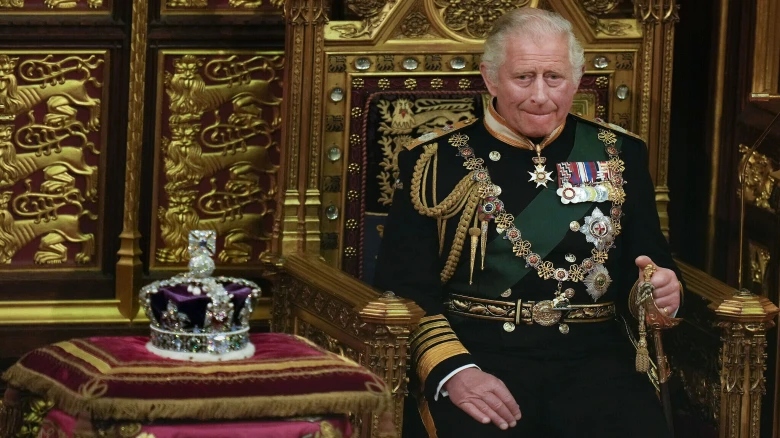Regional

He may also carry on the custom of celebrating his birthday twice a year...
London: The new king of the UK will be able to drive without a license, travel without a passport, and possess every mute swan in England. He may also carry on the custom of celebrating his birthday twice a year. He won't require one, unlike other members of the royal family, as the document will be issued in his name.
The list is as follows:
No license or passport
In contrast to other members of the royal family, King Charles III won't require a passport because one will already be issued in his name, so he may go abroad without one.
Every document will now have the following preamble: "His Britannic Majesty's Secretary of State requests and requires in the name of His Majesty, all those whom it may concern to allow the bearer to pass freely without let or hindrance and to afford the bearer such assistance and protection as may be necessary."
For the same reason, the monarch will be the only person in the United Kingdom who can drive without a license.
Two birthdays
Queen Elizabeth II celebrated her birthday twice: on April 21, which was private, and on June 2, which was a public holiday when the weather is usually more agreeable for outdoor parades.
Charles will probably also have his "formal birthday" in a month that is warmer, as his actual birthday is on November 14, which falls at the beginning of winter. With more than 1,400 troops, 200 horses, and 400 musicians participating in a display of military might, the public celebration known as Trooping the Colour has been going on for more than 250 years.
Members of the royal family watch from the balcony of central London's Buckingham Palace as the Royal Air Force performs a fly-past to finish the event.
No voting
The British monarch is not allowed to run for office or cast a ballot. As head of state, he or she must exercise scrupulous impartiality in matters of politics.
They take part in the official beginning of legislative sessions, ratify laws passed by the legislature, and meet with the prime minister once a week.
Swans, dolphins, and sturgeons
The British king or queen does not merely rule over individuals. Unmarked mute swans have been regarded as the monarchy's property in open waterways across England and Wales since the 12th century.
On portions of the River Thames where the swans are counted annually in a custom that is now a conservation effort, royal privileges are exercised.
In the British seas, sturgeon, dolphins, and whales are also subject to the royal prerogative.
Official poet
Every 10 years, Britain appoints a poet laureate who composes verses for the monarch. The honorary post includes a butt of sherry—equivalent to 720 bottles. In 2009, Carol Ann Duffy became the first woman nominated as poet laureate. She composed poems for Prince William's wedding in 2011 and the coronation in 2013.
Royal Warrant
The warrant, which is given to those who regularly provide the monarch with goods and services, is a great honour and a boost to business.
Businesses that get the warrant are permitted to display royal arms on their products.
Among the businesses holding a royal warrant are Waitrose supermarkets, Burberry, Cadbury, Jaguar cars, Land Rover, and Samsung.
Leave A Comment